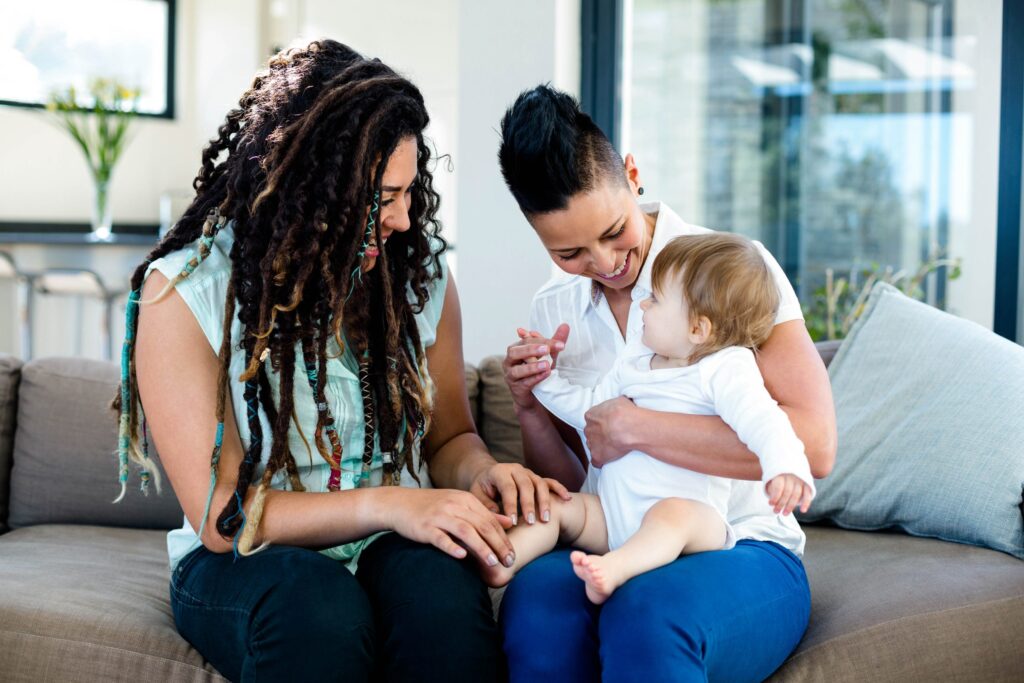Fertility benefits have quickly evolved from being considered a workplace perk to a business necessity, with nearly
two-thirds of large employers offering or considering these benefits in 2023. Yet, conventional fertility benefits often do not meet the family building needs of LGBTQIA+ employees, leaving a massive population out of the loop.
In fact,
20 million adults in the U.S. alone, or
1 in 5 across the globe, identify as LGBTQIA+. Particularly among LGBTQIA+ millennials,
77% have or want to build a family. Overall,
63% of LGBTQIA+ individuals expect to build their family through Assisted Reproductive Technology, either through fertility treatment and gestational surrogacy, adoption, or foster care. In order to truly meet the needs of all employees, an inclusive family building benefit that redefines infertility and includes adoption and surrogacy can be the answer.

Redefining Infertility
Infertility for opposite-sex couples, to qualify for benefit access, has a set definition that same-sex couples cannot meet. In order to prove infertility, same-sex female couples often need to pay out of pocket for intrauterine insemination using donor sperm for 6 months to 1 year.
The cost involved in seeking a diagnosis of infertility this way can be prohibitive and does not apply to opposite-sex couples, creating a discouraging imbalance for same-sex couples. By waiving the requirement for a diagnosis of infertility, all employees seeking to build their family can have a more equitable experience. WIN’s benefits are designed with an inclusive definition of infertility in mind, allowing a wider array of employees to access the treatments they need to become parents.
Surrogacy Access
Conventional fertility benefits typically cover IVF treatment, including fertility medications, and sometimes fertility preservation (egg and sperm freezing). However, LGBTQIA+ individuals often experience a unique set of challenges which require more resources in order to build their family. For same-sex male or transgender couples, gestational surrogacy can be the only viable option to have a child biologically related to one of them.
The cost of surrogacy includes fertility treatment costs, medical costs during the pregnancy, legal fees, lost wages and any other incurred costs related to the surrogacy. Surrogacy can cost $200,000 or more, with the additional cost of egg donation if needed. When this expense is not covered by benefits, having a biological child can be cost-prohibitive for many. In addition to surrogacy benefits, WIN provides personalized guidance and support for those pursuing
surrogacy by referring prospective parents to one of several experienced and credentialed surrogacy agencies in our network. WIN Nurse Care Advocates educate and support parents-to-be along the way by teaching them about their surrogates’ journey.
Adoption as an Option
Each year, thousands of families are made or expanded through adoption. This path to parenthood is a wonderful option for many by doubling as a chance to build a family and help a child in need. In fact, same-sex couples are
four-times more likely to adopt compared to opposite-sex couples, making adoption benefits a necessary component of a truly inclusive family building benefit.
The costs of adoption vary greatly, depending on whether an employee is adopting from foster care, from an agency in the U.S., or an overseas adoption through an agency. Adoption benefits generally cover three areas: information resources, financial assistance, and parental leave. Financial assistance helps cover legal and agency fees, which can vary from $20,000 to $50,000 or more.
Recent
surveys by Mercer show that nearly half of employers offer some kind of financial support for adoption. In addition to financial support, WINFertility provides guidance throughout an employee’s
adoption journey, including education about the adoption process and claim processing. Our partnerships also give members access to an online video library, resources and templates, as well as expert coaches that assist employees through the adoption or surrogacy process.
Expanding the scope of fertility benefits to include family-building options for all helps employers provide a more welcoming and inclusive environment, which in turn bolsters DEI initiatives and attracts a wider variety of talented employees. Click
here to learn more about WINFertility’s inclusive family building services.






